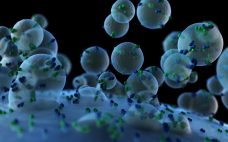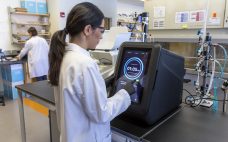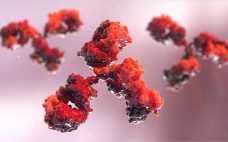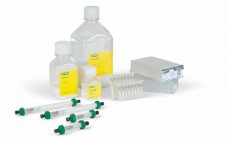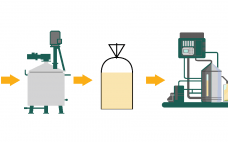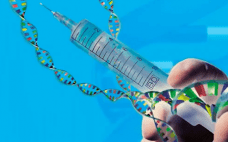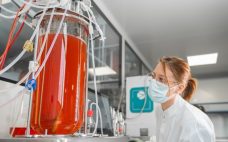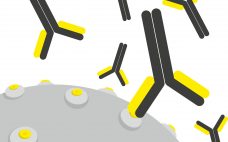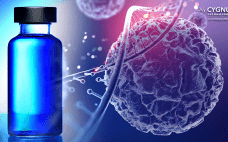This webcast features: Amy C. Kauffman, PhD, Senior Development Engineer, Corning Life Sciences Extracellular vesicles (EVs) are a population of particles that are naturally released from cells. They are involved in intercellular communication, providing the necessary factors to mediate physiological events, and they are of high interest because of their potential for becoming the next generation of therapeutics. One potential area of interest is in generating an EV therapeutic in place of mesenchymal stem cell (MSC) therapies for pathological conditions…
Webinars
Bioprocess 101 – Cell Culture Media Analysis
This webcast features: Graziella Piras, Segment Marketing Director, Bioprocessing, Marketing, 908 Devices Cell culture media analysis is a critical piece of the bioprocessing puzzle. From starting material and throughout the growth cycle, cell culture media analysis gives you a clearer, fuller picture of how amino acids, vitamins, and biogenic amines impact cell health and productivity. This Ask the Expert session will outline two of the key applications of cell media analysis in the production of biologics: media quality control (QC)…
The Way Forward in Therapeutic Antibody Purification
This webcast features: Dr. Anna Le Bris, Senior Application Specialist and Trainer, Thermo Fisher The development of therapeutic antibodies has made an enormous progression in the last decades. Antibodies have become the predominant class of biological drugs and are used to treat a variety of diseases such as cancer. Recently, neutralizing antibodies to halt infectious diseases are entering the clinical pipeline, including against Sars-Cov2. Affinity purification platforms such as Protein A or L are well established in the manufacturing process…
Exploring On-Column mAb Aggregate Formation and Self-Generated On-Column pH Gradients with Cation Exchange Resins
This webcast features: William H. Rushton, Process Chromatography Support Scientist, Bio-Rad Laboratories The formation of aggregates is a common occurrence during monoclonal antibody (mAb) purification and can happen for several reasons. Aggregates are undesirable due to the possibility of altered pharmacodynamics, pharmacokinetics, and/or increased immunogenicity. Generally, the formation of aggregates is shown to be product or process related. A high-resolution cation exchange (CEX) resin, Nuvia HR-S, has been shown to reduce aggregate content with high monomer recovery. In this webcast,…
Scalable Lentiviral Vector Manufacturing Using Proprietary Suspension Cell Line
This webcast features:Â Xiao Pan, Director of Process R&D, GenScript ProBio Fueled by recent successes of marked cell therapy products, the demand for high-quality and large-amount lentiviral vectors is also becoming greater. However, producing lentiviral vectors in an adherent system has many limitations, mainly around scalability and serum dependence. To overcome these difficulties, there is an urgent need for stable and scalable lentiviral vector manufacturing using a suspension system. GenScript ProBio is dedicated to developing lentiviral vector platforms using our proprietary…
Process Intensification: Ways to Achieve Extreme Biologics Volumetric Productivity
This webcast features: Xiao Pan, Director of Process R&D, GenScript ProBio The trend of biologics titer increase brings significant cost reduction. Process intensification needs to be introduced and applied to improve the titer performance and lower the COGS. Besides fed batch, GenScript ProBio has developed process intensification solutions including high-density inoculation and intensified perfusion. Through this webinar, you will learn the following information: The scope and trend of process intensification Intensified perfusion development roadmap Case study of process intensification Just…
The Path Toward Successful Innovation in Gene Therapies
This webcast features: Roland W. Herzog, PhD, Professor of Pediatrics, Riley Children’s Foundation Professor of Immunology, and Director of the Gene and Cell Therapy Program, Indiana University School of Medicine, and Nagendra Venkata Chemuturi, PhD, Scientific Director Research, Global DMPK, Takeda Pharmaceutical Company Gene therapies based on adenoassociated virus (AAV) vectors are emerging as a promising treatment strategy for various diseases, including an inherited form of blindness and spinal muscular atrophy. A major obstacle for the wide use of gene…
The Importance of Real-Time CO2 Monitoring in Cell Culture
This webcast features: Oliver Berteau, Pharmaceutical & Biotech Industry Manager, METTLER TOLEDO Process Analytics Inline dissolved CO2 (dCO2) measurement and monitoring during cell culture offers significant benefits for process control impacting productivity and quality attributes. Real-time dCO2 measurement complements routine dissolved CO2 measurements with a blood gas analyzer (BGA) during preclinical and commercial operations. Animal and insect cells are more or less sensitive to the level of dCO2 during cell culture. Toxic below and beyond specific thresholds, dCO2 is also…
The Critical Steps for Protein Therapeutic Potency Assay Development
This webcast features: Jennifer Lawson, PhD, Global Product Manager, Cell Banking and Testing, Sartorius Potency assays are an important part of the drug development process and are required throughout the lifetime of the product. The potency assay needs to correlate with the mechanism of action and provide an indication of stability. With these requirements comes a myriad of challenges in the development process, especially as therapeutics become increasingly complex. Assay development should be stepwise, starting with proof of concept and…
HCP Analysis by ELISA and Orthogonal Methods in Vaccine and Gene Therapy Development
This webcast features: Jared Isaac, PhD, Sr. Scientist, Chromatography and Mass Spectrometry, Cygnus Technologies Next-generation recombinant vaccines and gene therapy products require clinical and commercial manufacturing of protein antigens or viral vectors produced using cell culture technologies. Regulatory guidelines require testing for cell substrate related impurities, media and purification additives, as well as adventitious agents throughout vaccine and gene therapy development to study the candidate’s purity, safety, and efficacy. While low levels of most impurities can be inconsequential, patient safety…

